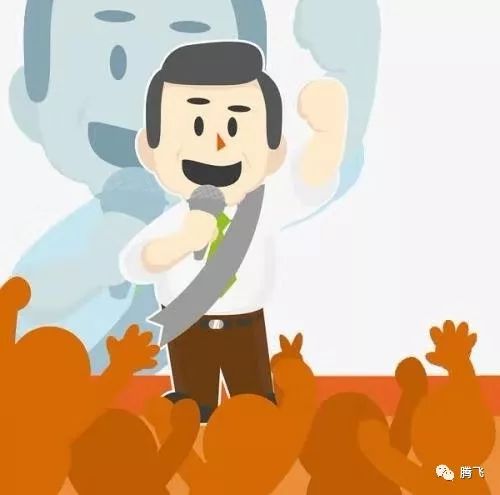薪水高有什么壞處?

薪水高有什么壞處?
獲得311好評的回答@Rafey Iqbal Rahman
1. One of the downfalls of getting a paycheck raise is getting used to a more expensive lifestyle.
薪水漲高的一個壞處是會讓你習慣更昂貴的生活方式。
This is actually a bad habit of employees.
實際上這是一個不好的習慣。
Most of the time, the first thing that they do when they get a raise is to upgrade their lifestyle.
大多數時候,一旦薪水漲高他們所做的第一件事是改善他們的生活方式。
This can be dangerous especially when a financial crisis happens.
這很危險,特別是當金融危機爆發后。
You might find it hard to adjust and make sacrifices in case your money runs out on you.
你會發現一旦你的錢離開了你,你很難適應并做出犧牲。
2. Another negative effect of a salary increase is being too self-satisfied.
另外一個漲薪水帶來的負面影響是人會變得太過于自我滿足。
This may be a positive but too much of it, especially when it comes to money, can be a bad thing.
這是積極的態度但是過于自我滿足的話,特別是當涉及到錢的時候,這是不好的一件事。
For instance, you may be too comfortable about the money coming in that you stop monitoring where it goes.
舉個栗子,你會過于的安逸而變得只在乎收入的錢而忽略了支出的錢去哪了。
This can be dangerous because you might be spending too much already or racking up too much debt.
這很危險,因為你可能花費太多而導致負債累累。
If you fail to monitor it, you might be in a big financial trouble and you are still unaware of it.
如果你沒有監控它,你很有可能陷入巨大財政問題而你還沒有意識到。
I would bring my answer to an end by the following quote:
最后,我想通過下面這句話來結束我的回答
:
Excess of everything is bad.
過多并非是好。
獲得176好評的回答@Covy Gochoco
When I was 26, I started working for a place that paid very well.
當我26歲的時候,我在一個待遇不錯的地方工作。
I managed to pay my student loan within a year.
在一年內,我努力還清學生貸款。
Then I bought a house, and travelled far and wide.
之后買了房子,周游各地。
Slowly every year, during bonus time I was surrounded by conversations about materials things.
而后的每一年,分發紅利期間我都會陷入關于物質的討論中。
I think the negative effects would be if you made decisions based on that salary that traps you for life.
我認為它所帶來不好影響是如果你基于工資水平來做決定,那很容易讓你陷入困境。
For me this was about buying several properties, which contrary to popular beliefs are not always sound investments!
對于我來說,決定無非關于買幾份地產,這可能有悖于關于明智投資的流行看法。
Those possessions made a huge impact on my future decisions.
這些財產對于我今后的決定起著很大的作用。
However, I am somewhat lucky that I didn't start a family, because that would have made me stay there, and resent my job and probably family too.
但是,我有點慶幸自己沒有開始組建家庭,因為這很可能使我 原地不動,導致我憎惡工作和家庭。
薪水高有什么壞處?
獲得311好評的回答@Rafey Iqbal Rahman
1. One of the downfalls of getting a paycheck raise is getting used to a more expensive lifestyle.
薪水漲高的一個壞處是會讓你習慣更昂貴的生活方式。
This is actually a bad habit of employees.
實際上這是一個不好的習慣。
Most of the time, the first thing that they do when they get a raise is to upgrade their lifestyle.
大多數時候,一旦薪水漲高他們所做的第一件事是改善他們的生活方式。
This can be dangerous especially when a financial crisis happens.
這很危險,特別是當金融危機爆發后。
You might find it hard to adjust and make sacrifices in case your money runs out on you.
你會發現一旦你的錢離開了你,你很難適應并做出犧牲。
2. Another negative effect of a salary increase is being too self-satisfied.
另外一個漲薪水帶來的負面影響是人會變得太過于自我滿足。
This may be a positive but too much of it, especially when it comes to money, can be a bad thing.
這是積極的態度但是過于自我滿足的話,特別是當涉及到錢的時候,這是不好的一件事。
For instance, you may be too comfortable about the money coming in that you stop monitoring where it goes.
舉個栗子,你會過于的安逸而變得只在乎收入的錢而忽略了支出的錢去哪了。
This can be dangerous because you might be spending too much already or racking up too much debt.
這很危險,因為你可能花費太多而導致負債累累。
If you fail to monitor it, you might be in a big financial trouble and you are still unaware of it.
如果你沒有監控它,你很有可能陷入巨大財政問題而你還沒有意識到。
I would bring my answer to an end by the following quote:
最后,我想通過下面這句話來結束我的回答
:
Excess of everything is bad.
過多并非是好。
獲得176好評的回答@Covy Gochoco
When I was 26, I started working for a place that paid very well.
當我26歲的時候,我在一個待遇不錯的地方工作。
I managed to pay my student loan within a year.
在一年內,我努力還清學生貸款。
Then I bought a house, and travelled far and wide.
之后買了房子,周游各地。
Slowly every year, during bonus time I was surrounded by conversations about materials things.
而后的每一年,分發紅利期間我都會陷入關于物質的討論中。
I think the negative effects would be if you made decisions based on that salary that traps you for life.
我認為它所帶來不好影響是如果你基于工資水平來做決定,那很容易讓你陷入困境。
For me this was about buying several properties, which contrary to popular beliefs are not always sound investments!
對于我來說,決定無非關于買幾份地產,這可能有悖于關于明智投資的流行看法。
Those possessions made a huge impact on my future decisions.
這些財產對于我今后的決定起著很大的作用。
However, I am somewhat lucky that I didn't start a family, because that would have made me stay there, and resent my job and probably family too.
但是,我有點慶幸自己沒有開始組建家庭,因為這很可能使我 原地不動,導致我憎惡工作和家庭。









